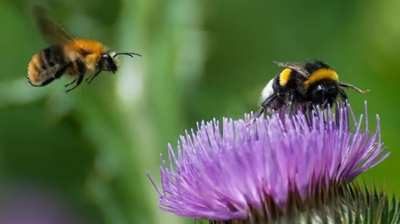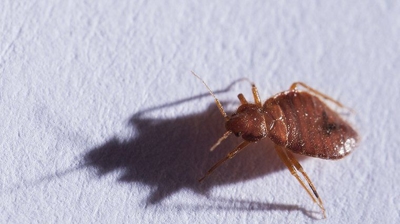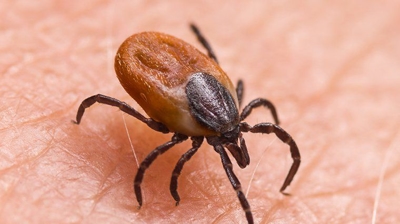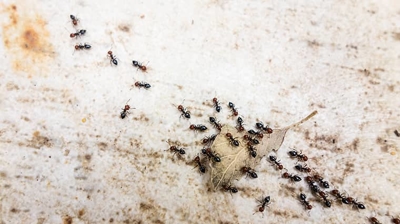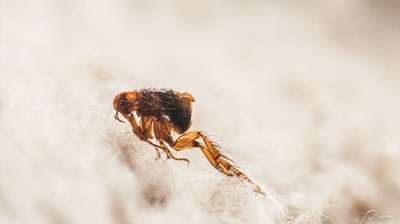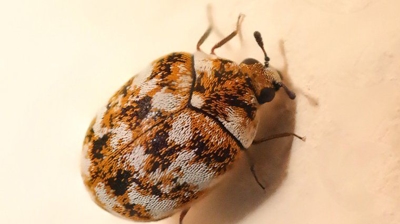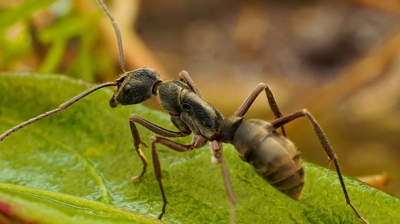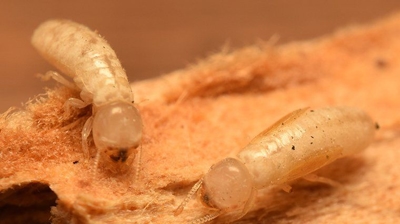
How To Get Rid Of Ants In The House: What Everyone In Lawrenceville Ought To Know
Ants are a common household pest that can be difficult to get rid of once they establish a presence in your home. In Lawrenceville, GA, there are several common ant species that homeowners may encounter. It's important to identify the type of ant species in order to pursue effective ant control. Ant infestations not only cause annoyance and frustration, but they can also pose health risks. In this article, we will discuss how to identify common ant species in Lawrenceville, the health risks associated with ant infestations, and tips for naturally preventing future ant problems. For pest control in Lawrenceville, put your faith in ProCare Pest Services.
Identifying Common Ant Species
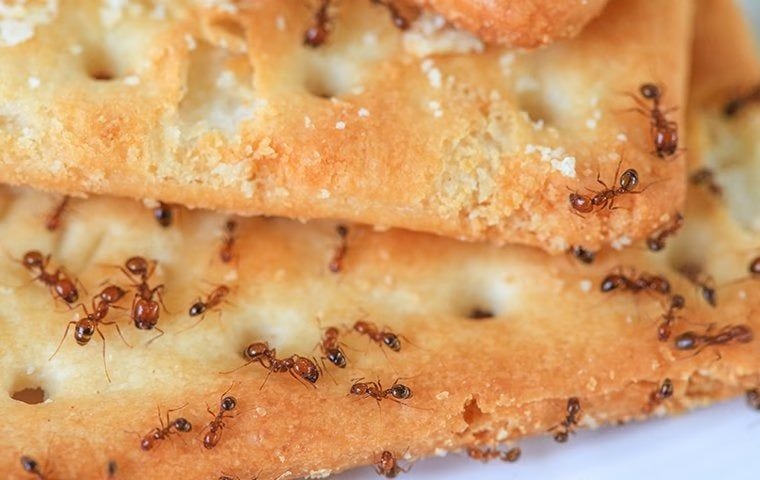
Ants are social insects that belong to the family Formicidae. They are known for their highly organized colonies, with specific roles for each individual, such as worker ants, soldier ants, and queen ants. Ants can be found on every continent except Antarctica and work together to accomplish tasks, such as building nests, finding food, and defending their colonies. There are over 12,000 species of ants, and they come in a variety of shapes, sizes, and colors. They are important members of many ecosystems, playing roles such as soil aerators and seed dispersers while also serving as a food source for many other animals.
Ants are an incredibly diverse group of insects, with over 12,000 known species. While there are many different types of ants, there are some common species that you may encounter in your daily life. Here is a closer look at some of these common ant species in Lawrenceville and how to identify them:
- Argentine Ants: Argentine ants are small, light to dark brown ants that are about 1/16 to 1/8 of an inch in length. They are commonly found in urban areas and are known for forming large colonies. Argentine ants are omnivorous and will eat a wide range of foods, including sweets, meats, and vegetables.
- Carpenter Ants: Carpenter ants are large ants that can grow up to 1/2 an inch in length. They are typically black or brown in color and have a large, rounded thorax. Carpenter ants are known for their ability to excavate wood and create tunnels and galleries, which can lead to structural damage in homes and buildings.
- Fire Ants: Fire ants are reddish-brown ants that are about 1/16 to 1/8 of an inch in length. They are known for their painful sting, which can cause allergic reactions in some people. Fire ants build large mounds and are aggressive when their nests are disturbed.
- Pavement Ants: Pavement ants are small, dark brown ants that are about 1/16 of an inch in length. They are commonly found in urban areas and build nests under sidewalks and pavement. Pavement ants are omnivorous and will eat a wide range of foods.
- Pharaoh Ants: Pharaoh ants are small, light-colored ants that are about 1/16 of an inch in length. They are commonly found in homes and buildings and are known for being difficult to control. Pharaoh ants are omnivorous and will eat a wide range of foods, including sweets, meats, and vegetables.
- Odorous House Ants: Odorous house ants are small, dark-colored ants about 1/16 to 1/8 of an inch in length. They are commonly found in homes and buildings and are known for their distinctive odor when crushed, which smells like rotting coconut. Odorous house ants are omnivorous and will eat a wide range of foods.
To identify common ant species, it is important to look at their size, color, and behavior. Ants can be difficult to identify, so it is often helpful to consult with an expert, such as a pest control professional, for proper identification and treatment.

Why Choose ProCare Pest Services?
-
Locally Owned & Operated
-
Timely Services Available
-
Free Inspections for Your Home or Business
-
Modern & Effective Pest Control Methods
Contact Us To Completely Eliminate An Ant Infestation
If you have an ant infestation that you cannot control with natural remedies or over-the-counter products, it may be time to contact our company, ProCare Pest Services. Here are some of the steps we would take to eliminate an ant infestation:
- Inspection: Our pest control professional will inspect your home or workplace to identify the species of ant and the extent of the infestation. We will look for entry points, trails, and nests to determine the best course of action.
- Treatment Plan: Based on the results of the inspection, we will develop a treatment plan tailored to your specific needs. This may involve the use of bait stations, sprays, dust, or other products.
- Treatment Application: Our pest control professional will apply the selected treatment to the affected areas, such as entry points, trails, and nests. We may also treat the surrounding areas to prevent future infestations.
- Follow-Up: After the initial treatment, we will schedule follow-up visits to monitor the effectiveness of the treatment and make any necessary adjustments.
- Prevention: To prevent future infestations, we may recommend certain preventive measures, such as sealing entry points, trimming back vegetation, and keeping your home or workplace clean and free of food debris.
We are a reputable and licensed home pest control company with a proven track record of effective ant control.
Completely eliminating an ant infestation requires a combination of natural remedies, good hygiene practices, and professional pest control treatment. By taking prompt action and working with our team at ProCare Pest Services, you can regain control of your home or workplace and prevent future infestations with easy ant control solutions. Call us for reliable ant control services near your home.
-
"The ProCare team continuously provides wonderful and effective service"
The ProCare team continuously provides wonderful and effective service. Every technician we've had is friendly and considerate, true professionals, and very responsive to any questions or areas of concern we discuss.
Naomi G. -
"He is Procare’s shining star"
Brandon is awesome and always does an outstanding job for us.
Brue W. -
"John was very responsive and willing to answer any questions we had"
First meeting with Procare and staff.
Marty C. -
"Extremely pleased with the company"
Professional! Communication was excellent. Arrived on time did a great job.
Tonja B.
Naturally Effective Tips To Prevent Future Ant Problems
Preventing future ant problems requires a combination of good hygiene practices and the use of natural deterrents. Here are some tips to help prevent future ant problems:
- Keep Your Home Clean: Ants are attracted to food and water sources, so it is essential to keep your home clean and free of crumbs, spills, and other food debris. Make sure to clean up spills immediately and wipe down countertops, floors, and other surfaces regularly.
- Store Food Properly: Keep food stored in airtight containers to prevent ants from getting inside. Make sure to keep pet food and water dishes clean.
- Seal Entry Points: Seal cracks and crevices in your home's exterior with caulk or weatherstripping to prevent ants from entering. Make sure to seal around doors, windows, and other entry points as well.
- Use Natural Deterrents: Ants are repelled by strong scents, such as vinegar, lemon juice, peppermint, and cinnamon. You can use these natural deterrents to create a barrier that ants will not cross. For example, you can mix equal parts water and white vinegar and spray it around entry points to your home or along ant trails.
- Remove Ant Trails: When you see ants in your home, follow their trail back to the source and wipe it down with a mixture of water and vinegar or soapy water. This will remove the pheromone trail that ants use to communicate with each other and prevent them from returning.
- Maintain Your Yard: Ants living in your yard are more likely to venture into your home, so it is important to keep yards well-maintained. Trim back overgrown bushes and trees, keep your lawn mowed, and remove any debris that could provide shelter for ants.
By following these tips, you can help prevent future ant problems in your home or workplace. However, if you have a severe ant infestation, it may be necessary to consult with a pest control professional for more aggressive treatment options. Give us a call for quality ant pest control services near you!
Complete the form below to request your quote.

Stay In The Know
-
 Carpenter Bee Survival Guide: Identification, Control, And PreventionRead More
Carpenter Bee Survival Guide: Identification, Control, And PreventionRead More -
 Identifying A Bed Bug Infestation In LawrencevilleRead More
Identifying A Bed Bug Infestation In LawrencevilleRead More -
 Key Practices To Prevent Ticks On Your Lawrenceville PropertyRead More
Key Practices To Prevent Ticks On Your Lawrenceville PropertyRead More -
 A Helpful Pavement Ant Prevention Guide For Lawrenceville HomesRead More
A Helpful Pavement Ant Prevention Guide For Lawrenceville HomesRead More -
 Breaking the Flea Life Cycle In LawrencevilleRead More
Breaking the Flea Life Cycle In LawrencevilleRead More -
 Defeating Carpet Beetles And Reclaiming Your Lawrenceville HomeRead More
Defeating Carpet Beetles And Reclaiming Your Lawrenceville HomeRead More -
 Lawrenceville's Guide To Complete Ant RemovalRead More
Lawrenceville's Guide To Complete Ant RemovalRead More -
 Innovative Termite Control: Modern Solutions for Modern HomesRead More
Innovative Termite Control: Modern Solutions for Modern HomesRead More
